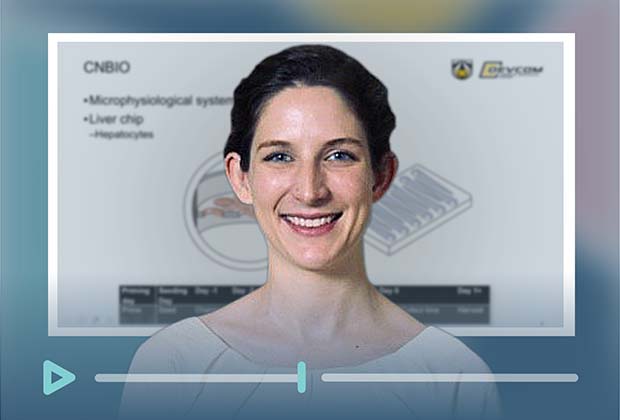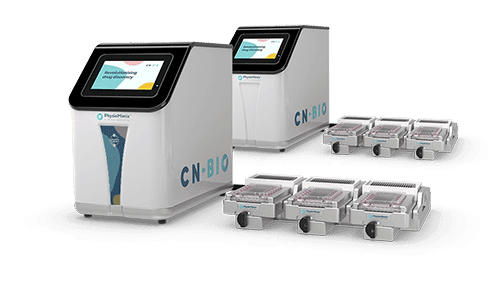Resource > Webinars >
Normalization of organ-on-a-chip samples
Normalization of organ-on-a-chip samples for mass spectrometry based proteomics and metabolomics via dansylation-based assay
Filed under: DILI, General OOC, and Safety toxicology

Video content if present
Mass spectrometry based ‘omics pairs well with organ-on-a-chip-based investigations, which often have limited cellular material for sampling. A common issue with chip-based platforms is well-to-well or chip-to-chip variability in the proteome and metabolome due to many factors including plate edge effects, cellular asynchronization, effluent flow, and limited cell count. This can cause variability in the quantitative multi-omics analysis of samples, potentially masking true biological changes.
The methods in this work utilize a dansylation based assay with a subset of labeled metabolites that allow for pre-acquisition normalization to better correlate the biological perturbations that truly occur in chip-based platforms. BCA protein assays were performed in tandem to achieve pre-acquisition normalization. The CN Bio PhysioMimix was seeded with primary hepatocytes, challenged with VX after six days of culture and the metabolome and proteome analyzed using the described normalization methods. A decreased coefficient of variation percentage is achieved, significant changes are observed through the proteome and metabolome, and better classification of biological replicates are acquired using these strategies.
Key Takeaways
- Discover more about our recently published paper “Normalization of Organ-on-a-Chip Samples for Mass Spectrometry Based Proteomics and Metabolomics via Dansylation-based Assay”
- Explore how we applied the danyslation normalization methods to data derived using the CN Bio PhysioMimix OOC System to produce more robust metabolomics data
- Uncover how our lab applies this normalization to other microphysiolgical systems in our laboratory.
Our speaker
Erin Gallagher, PhD., CCDC Chemical Biological Center. US Army
Dr Erin Gallagher received her doctorate in 2019 from Johns Hopkins University, focusing on in vitro blood brain barrier models and nanoparticle delivery to the brain. She received a National Research Council postdoctoral associateship at the U.S. Army DEVCOM Chemical Biological Centre. Her postdoctoral work focused on developing and standing up microphysiological systems, including Emulate, CNBio, and TissUse. She has transitioned into a civilian position working on brain and blood brain barrier models, as well as continuing evaluating and using MPS systems for toxicological analysis.

